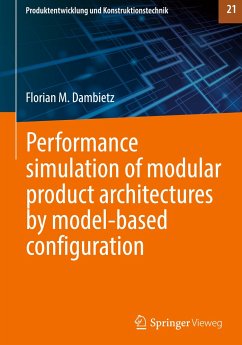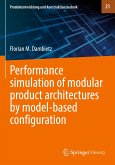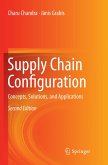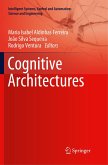The use of modular product architectures can significantly increase the efficiency in manufacturing companies. Various modularization methods are used in the development of these architectures, but they always result in different architecture alternatives. This thesis describes the development of a model-based simulation for multi-dimensional performance assessment of these architecture alternatives with their corresponding modular kits. The central element of this simulation is formed by a model-based configuration system, identifying individually valid product variants using concepts and tools of Model-based-systems-engineering (MBSE). Based on the developed Hyperspace algorithm, a geometric-mathematical solution approach, these variants are then evaluated considering multiple parameters. By recursively configuring multiple customer requests using alternative modular kits, an individual performance criterion of these alternatives can be generated, including customer-, market- andcompany parameters. This thesis describes the development of the performance simulation on the basis of a simplified explanation example. A validation based on customer-specific laser welding systems is also shown.
Bitte wählen Sie Ihr Anliegen aus.
Rechnungen
Retourenschein anfordern
Bestellstatus
Storno








